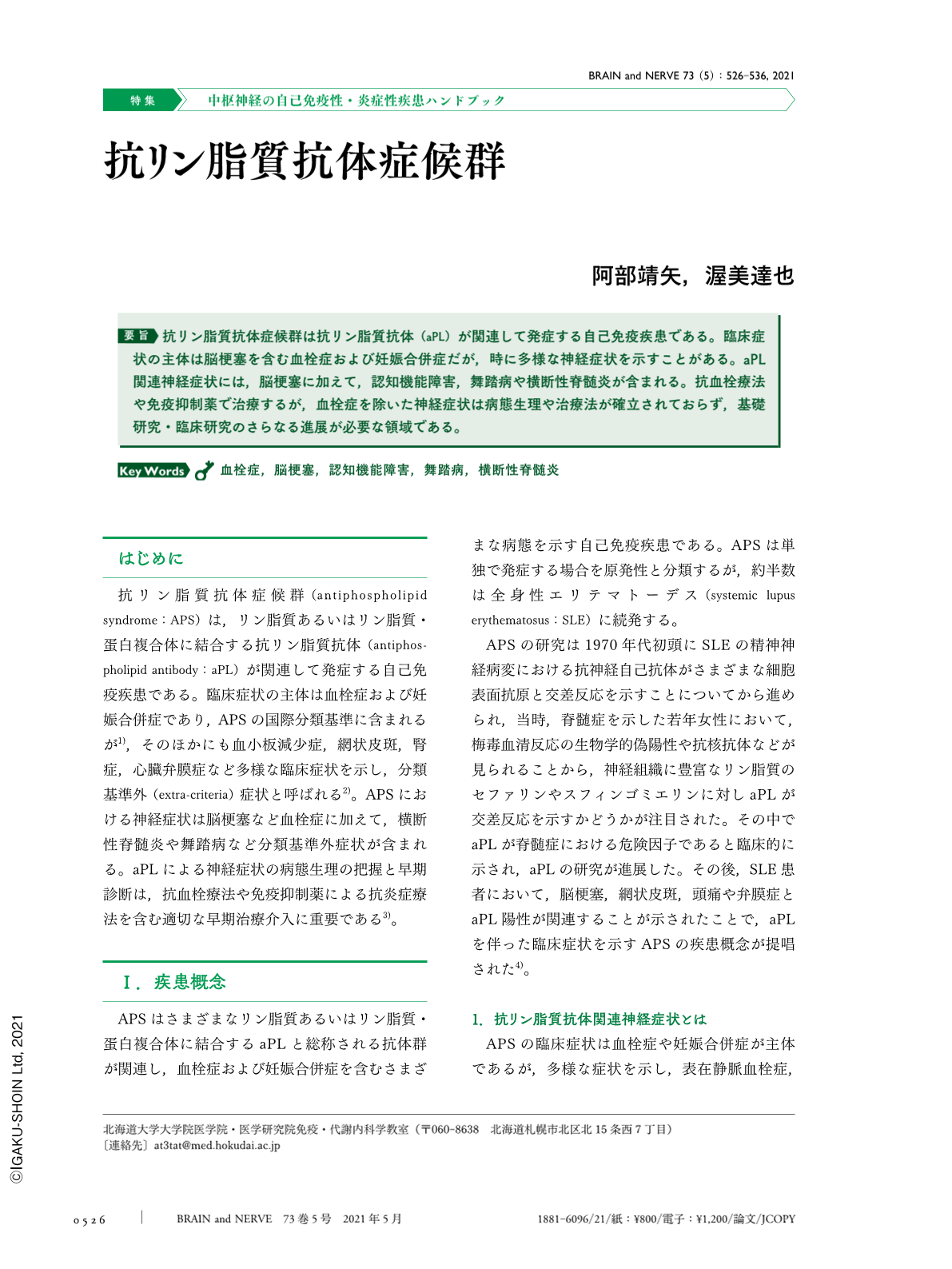Japanese
English
- 有料閲覧
- Abstract 文献概要
- 1ページ目 Look Inside
- 参考文献 Reference
抗リン脂質抗体症候群は抗リン脂質抗体(aPL)が関連して発症する自己免疫疾患である。臨床症状の主体は脳梗塞を含む血栓症および妊娠合併症だが,時に多様な神経症状を示すことがある。aPL関連神経症状には,脳梗塞に加えて,認知機能障害,舞踏病や横断性脊髄炎が含まれる。抗血栓療法や免疫抑制薬で治療するが,血栓症を除いた神経症状は病態生理や治療法が確立されておらず,基礎研究・臨床研究のさらなる進展が必要な領域である。
Abstract
Antiphospholipid syndrome (APS) is an autoimmune disease characterized by persistent presence of positive antiphospholipid antibodies (aPLs). Historically, aPLs first attracted attention at the beginning of the 1970s, as a risk factor for the development of myelitis via cross-reaction with cephalin and sphingomyelin as neuronal tissue-enriched phospholipids. Primary APS manifestations include arteriovenous thrombosis and pregnancy complications; however, in rare cases, aPL-related neurological disorders including cognitive dysfunction, chorea, and transverse myelitis are observed.” The pathogenesis and therapeutic strategies for thrombosis, including cerebral infarction in APS, have been established from basic and clinical research to date. However, pathological insights and clinical perspectives have not yet been well-defined for aPL-related cognitive dysfunction, chorea, and myelitis. Based on past experiences and findings of small observational studies, some patients with aPL-related neurological disorders recover following antiplatelet and anticoagulation therapy, but in some cases, multidisciplinary treatments with glucocorticoids and/or immunosuppressive agents, including cyclophosphamide, azathioprine, mycophenolate and rituximab, plasmapheresis, and psychoeducational support are required. A detailed research on pathophysiology and nationwide or international multicenter clinical trials for therapeutic strategies are vital for establishing sufficient basic and clinical understanding of aPL-related neurological manifestations.

Copyright © 2021, Igaku-Shoin Ltd. All rights reserved.


